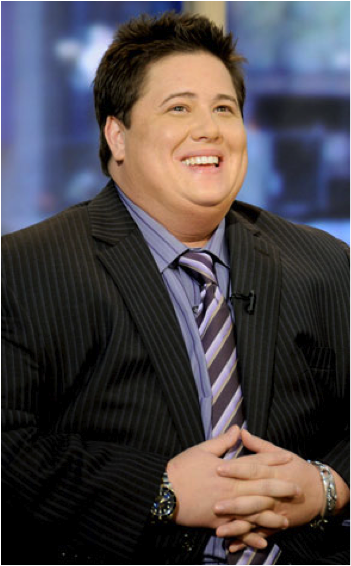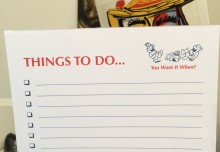Earlier this summer I read an interview with Chaz Bono that opened a window onto the unique point of view acquired by someone who was raised on Venus but now calls Mars home. [The backstory, for those of you who don’t read Us or Sunday Styles: Chaz, who began life as Chastity, daughter of Sonny and Cher, initially identified as a lesbian before deciding to become male. Now mid-way through the gender transition process, he has undergone one surgery and gets regular hormone injections.]

 According to the reporter, Chaz looks and sounds like “an affable, candid, pudgy, regular guy.” Unlike most regular guys, however, Chaz has a longtime girlfriend who he began dating when he was a woman. Reflecting on how his transition has affected their relationship, Chaz said, “Jenny and I had to relearn how to be together. I never really understood women before, to be honest, but I had a tolerance for women that I don’t have now. There is something in testosterone that makes talking and gossiping really grating. I’ve stopped talking as much. I’ve noticed that Jen can talk endlessly.”
According to the reporter, Chaz looks and sounds like “an affable, candid, pudgy, regular guy.” Unlike most regular guys, however, Chaz has a longtime girlfriend who he began dating when he was a woman. Reflecting on how his transition has affected their relationship, Chaz said, “Jenny and I had to relearn how to be together. I never really understood women before, to be honest, but I had a tolerance for women that I don’t have now. There is something in testosterone that makes talking and gossiping really grating. I’ve stopped talking as much. I’ve noticed that Jen can talk endlessly.”
It’s tempting to dive into the gender biology / nature vs. nurture debate here (did I mention that Chaz also confessed to being, suddenly, “way more gadget-oriented” now?), but the aspect of Chaz’s transformation that interests me most has to do with his perspective.
As we move through life, all of us undergo perspective shifts, both subtle and radical, that alter the way we see the world, the people around us and ourselves. Unlike Chaz, however, very few of us will ever have first-hand knowledge about how it feels to be a woman and a man. And none of us can know with certainty what it’s like to be somebody else entirely. Think of the misunderstandings – not to mention wars – that could be averted if we were able to see the world through someone else’s eyes. Perhaps scientific advances in the realm of emotional intelligence will make that way of knowing possible one day, but for now we’ve got to rely on our own powers of deduction and induction to understand what others around us might be feeling, thinking or wanting at any given time.
People who are highly adept at this are generally able to build stronger and more effective relationships, which often translates into greater professional and personal success. Negotiating, influencing, motivating, leading, mentoring, developing, parenting – to do them well, all of these activities require the ability to anticipate, accept and act on someone else’s preferences or point of view – even though they may be very different from our own. When those differences are known and respected by both sides, then the path to finding a compromise, or at least agreeing to disagree, is fairly straightforward. But often that’s not the case.
In the workplace, when power structures are added into the mix, navigating this terrain becomes even more complex. Chances are slim that a direct report will tell you, “I’m an introvert and need time to digest and respond to new information, so please don’t misinterpret my silence in meetings as having nothing to say. I’ll get back to you as soon as I can with my best thinking on the topic, preferably in writing.” It’s equally unlikely that your new boss will say, “I like data, and lots of it – the more granular the better. I’m a Zamboni in meetings because I learned at home that the only way to win is to steamroll everyone else and get the last word in.” But, like any other skill, getting insights into someone else’s worldview and incorporating that knowledge into the approach you take with them can be learned.
In my next post, I’ll share a few strategies you can use to hone your technique. In the meantime, I’d love to hear stories about what has worked for you, as well as examples of perspective shifts you’ve undergone in your own life, what the trigger was and what you learned from the experience.









